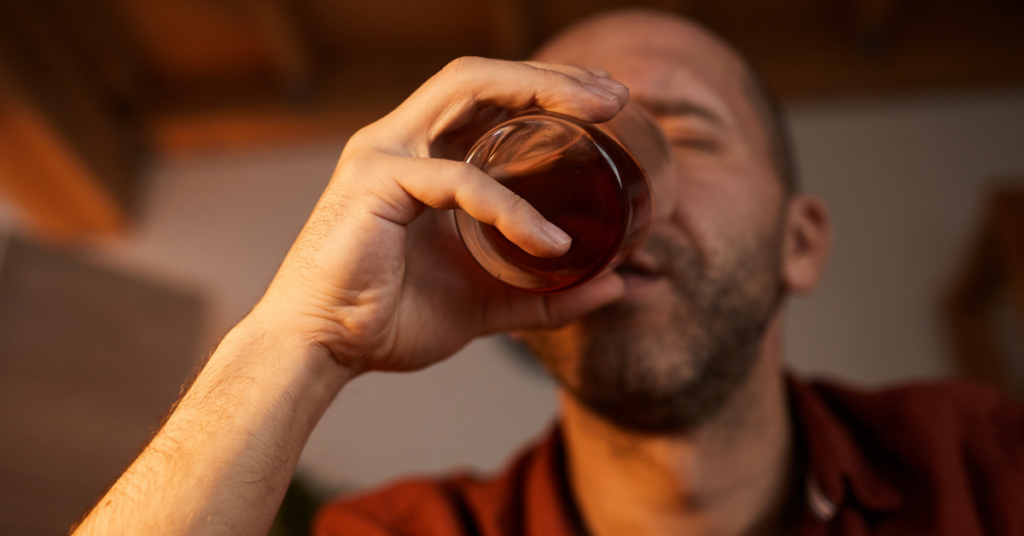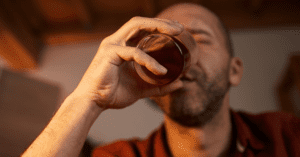Also known as chlordiazepoxide, Librium is a prescription sedative that is part of the benzodiazepine drug class. While benzos like Xanax are prescribed to treat panic and anxiety disorder, Librium is used to treat anxiety, tremors, and alcohol withdrawal symptoms. But what happens when Librium and alcohol are mixed? If you or someone you know is taking this medication, Evoke Wellness Miramar in South Florida explains the danger of mixing chlordiazepoxide and alcohol.
How Does Librium Work?
Like other drugs of its class, Librium works by stimulating the release of the inhibitory neurotransmitter gamma-Aminobutyric acid (GABA). GABA is referred to as an inhibitory transmitter because it inhibits or blocks neural communication in the brain and body, producing sedation and depressing functions like heart rate, movement, breathing, and thinking. For people with anxiety, Librium is effective in reducing symptoms like rapid heart rate and breathing, nervousness, and racing thoughts, which help them to relax during moments of anxiety or panic attacks. For people who are undergoing alcohol detox and withdrawals, Librium can improve confused thinking and stimulate appetite, which is important for preventing the loss of nutrition to symptoms like diarrhea and vomiting. Another reason why Librium is used for alcohol withdrawal is that it relieves tremors. Because tremors and uncontrollable shaking are usually the results of rapid firing neural communication, Librium’s depressant effects on the central nervous system reduce these signals and alleviate tremors. Despite its benefits, it’s also important to note the possible negative Librium (chlordiazepoxide) side effects that could occur, including:
- Drowsiness
- Sedation
- Nausea and/or vomiting
- Constipation
- Stomach pain
- Headache
- Blurred vision
- Confusion
Librium is also addictive, and taking higher doses than prescribed can lead to severe dependence and addiction. If you experience any of the symptoms mentioned above, do not skip or change your dosages. Be sure to speak to a doctor so they can determine the best course of action for you.
Can You Drink On Librium?
Benzodiazepines like Librium are among the most commonly abused drugs in the world. Many people become addicted as a result of a developed tolerance and dependence on their medications or simply as a result of long-term recreational use. Due to their highly addictive nature, even people who take benzos regularly and as directed by a doctor can develop a physical dependence. While dependence on certain drugs is to be expected when it comes to certain medications, it’s often a warning sign of addiction and shouldn’t be taken lightly. Although some patients do well in speaking to their doctors when they notice that the same dose isn’t as effective or they need a higher dose to experience the same effects, others might increase their doses or mix their medications with other drugs to get high. With that said, you cannot drink alcohol on Librium. Unfortunately, people who are addicted to Librium and other benzos mix them with alcohol to increase their sedative side effects and experience a stronger high. But of course, this comes with some major risks.
Side Effects of Mixing Librium & Alcohol
Taking Librium with alcohol is mainly dangerous because they’re both central nervous system depressants. Considering they both impact GABA levels in the brain, taking them together increases each other’s side effects, producing an extreme sense of sedation and impairing important functions like breathing and heart rate. Overall, common side effects of Librium and alcohol include:
- Extreme sedation
- Drowsiness and dizziness
- Confusion
- Impaired judgment
- Difficulty concentrating
- Inability to stay awake
- Severe tiredness or fatigue
- Slowed or depressed breathing
- Decreased heart rate
- Muscle weakness
- Impaired movement and coordination
- Loss of consciousness
Of these side effects, the most severe and common of a Librium-alcohol interaction is depressed breathing. Also known as respiratory depression, this refers to shallow and ineffective breathing that doesn’t pass enough oxygen to the brain. This is the result of the drugs’ depressant side effects on the respiratory system.With depressed breathing also comes the risk of brain damage due to lack of oxygen. Combining depressants like chlordiazepoxide and alcohol can also result in an overdose, which may be marked by intensified side effects as the ones mentioned above or even death. In addition to the physical effects of drinking on Librium, alcohol can also impair Librium’s ability to alleviate symptoms of anxiety, which can be distressing to someone who takes it for this reason. Alcohol itself can also impact mental health, which can worsen anxiety in people who are taking Librium to manage their symptoms. Furthermore, considering that both alcohol and chlordiazepoxide are addictive, taking the two together also increases the risk of developing a substance use disorder. If you or a loved one have reached this point, our South Florida Detox Center can help patients get through withdrawal symptoms and take the first step towards a sober life.
Help for Polydrug Abuse
At our Miramar, FL, Evoke Wellness center, we offer various drug and alcohol treatment services to help people who are addicted to substances like benzos and alcohol recover and develop a sober lifestyle. From medical detox to substance-specific treatment, our inpatient Miramar rehab center helps clients through every step of the way. If you or someone you care about is struggling with drug or alcohol addiction, don’t wait to reach out to us for help. Call Evoke Wellness at Miramar today at 833-819-6066 for more information about our inpatient South Florida rehab programs.



